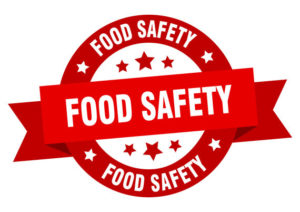Food Safety Modernization Act training grants coming from USDA-NIFA
The U.S. Department of Agriculture’s (USDA) National Institute of Food and Agriculture (NIFA) will invest $10 million in 21 grants to develop and implement food safety and Food Safety Modernization Act-related training, education, extension outreach and technical assistance for food processors and farmers with small to mid-size operations.
“The Centers for Disease Control and Prevention reports 48 million people in this country get sick from foodborne illness each year. Education and outreach are essential for ensuring our food supply is safe from the field to the table,” said NIFA Director Carrie Castille.
“NIFA’s integrated approach to enhancing food safety practices includes multi-state coordination, community outreach and collaborative projects that enable small farm operators, wholesalers and small-scale processors to get the support they need,” she said. “This program helps deliver critical trainings and resources that equip our small business owners with tools to provide safe, high-quality food, strengthen their businesses and contribute to national nutrition security.”
Additional communities supported through this Food Safety Outreach Competitive Grant Program include beginning farmers, socially disadvantaged farmers, veteran farmers and ranchers, and small fresh fruit and vegetable merchant wholesalers.
Awards are made under three categories: Multistate Education and Training Projects, Community Outreach Projects and Collaborative Engagement Supplements. In FY 2021, NIFA made 13 Collaborative Education and Training Project awards, four Community Outreach Project awards and four Regional Center awards.
Examples of the 21 funded FSOP grants include:
- The Food Safety Modernization Act (FSMA), passed into law in 2011 with food codes that protect communities from foodborne illness, largely focuses on training for large farmers and ranchers with commercial operations. Wisconsin Tribal Conservation Advisory Council, Inc., will modify the FSMA training curriculum for Tribal growers, producers, and traditional harvesters so that they will increase their knowledge on safe handling of produce and traditional and wild foods. ($300,000)
- Auburn University’s project, “Building a Food Safety Training Program to Empower Disadvantaged Producers in Alabama — Empowering Farmers Project,” will develop a food safety training program to empower limited-resource, minority farmers in the Black Belt region of Alabama. These small farmers have access to the fertile black belt soil, yet they lack access and adequate information to reap the full benefits of this resource. ($300,000)
- Oregon State University’s project, “Western Regional Center to Enhance Food Safety,” will continue to foster collaboration in food safety education and stakeholder support of FSMA implementation. Leveraging a multi-institutional infrastructure already established across the U.S. Western Region, this initiative will expand the education network to include additional participants from Land-grant Universities, Alaska Native-serving, Native Hawaiian-serving, and Hispanic-serving Agricultural Institutions, as well as non-governmental organizations from 13 western states and two Pacific territories. ($793,592)
NIFA invests in and advances agricultural research, education, and Extension across the nation to make transformative discoveries that solve societal challenges. NIFA supports initiatives that ensure the long-term viability of agriculture and applies an integrated approach to ensure that groundbreaking discoveries in agriculture-related sciences and technologies reach the people who can put them into practice. In FY2020, NIFA’s total investment was $1.95 billion.








